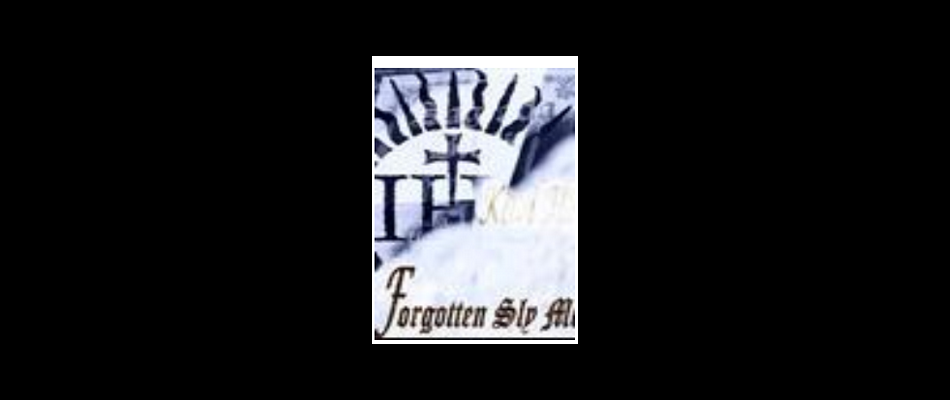
Chapter I: The Last Magus
Ecrit par logomachicus
Chapter
I: The Last Magus
«Assurons-nous
bien du fait, avant que de nous inquiéter de la cause», Bernard Le Bovier de
Fontenelle
The very person of Pontius
Pilate for the average Christian ‘fundamentalist’ has become a source of
disgust. But for many religious historians the name of the character is an
embodiment of awe and excitement. So far, many of them have gone an extra mile
to absolve the scoundrel of his
‘mortal sin’.
Few,
if any, have the actual knowledge of the years of Pontius Pilate after the Passion of the Christ Jesus. Certainly,
not any ignorant
Christ follower knows it. Fragments of the
Q-document in the library of the Irish missionary may give some light into the
subject.
The library, as figured in
the articulate will of Rev J.H.,sj, has been bequeathed to his only “begotten”
son Rev Joseph Sandoval Duarte, a companion of Jesussj.
Many
books in the illustrious library talk profusely about the Passion of Christ
Jesus. They hint out on the key figures that featured
prominently in the many stages of the trial of the Son of David.
Joseph
of Arimathea and Nicodemus were by now former members of the Sanhedrin. Their key testimony in
the trial of Jesus before the Sanhedrin was one of the main reasons of such an
unprecedented church punishment. Their gesture, unbeknownst of them, had made
big fools of Caiaphas and his accomplices.
For this and many other grudges harbored
against them, these council members have been
unceremoniously excommunicated from the esteemed
institution. Their closeness with Jesus which has become evident during the
Trial of the Nazarene was not to help matters.
Left with a gloomy future with no mores privileges, Joseph of Arimathea and Nicodemus did
not cry on their own fate and with the help of some
sympathetic people, they managed to secure a decent burial in a hewn stone for
the mortal remains of the dead messiah.
They had previously made a feat by their courage and
faith in the Son of man.
With the discrete support of Claudia Procula, a high level roman citizen and a
secret disciple of Jesus, they got a writ from Pontius Pilate in order to
remove away from the cross, the corpse for burial. Even buried, the revilers of
the Son of Man did not relent on their evil design.
Fearing that the apostles of the man will come and steal away his body, Caiaphas, Annas and a good number of their enthusiast supporters went
to Pontius Pilate by night. Upon their arrival, they made
a funny request to the roman official.
. By then, after what the
eyewitnesses y saw happened in the temple during ‘the hour of smoke and darkness’, many
people out of the lot, out of remorse and perhaps through enlightenment, have already
withdrawn their formal support to this vile scheme and the minds
behind it.
‘Ave Caesar,’ greeted Caiaphas
the High Priest.
‘Ave Caesar,’ responded a
tormented Roman Procurator.
It was not customary for a
Jew, and a high ranking one for that matter, to greet a Roman official in such
a Roman style. But in their desperate situation, Caiaphas and companions were
willing by all available means to suppress any possible mark from the face of
the earth of the preacher and the healer that hailed from Galilee.
‘What do you want
again from me?’ asked an anxious Pontius Pilate.
Since their last
encounter, the prefect of Judea had lost all sleep and was already bitterly
regretting his major involvement in the casa contra Iesu NazarenensisNazarenenus, rex
Iudaeorum.
The Roman Prefect
granted to the Chief Priest and all his
accomplices a formal security made up of temple’s guards to keep watch over the
tomb. Thereafter, he sent them packing.
‘Go and look for him
on Golgotha,’ an angry Pontius Pilate at his wits end told
Caiaphas
and comrades.
These temple’s guards had the primal duty to insure
that the order- and discipline- pertaining to the temple activities were kept.
They did not wear the heavy military attire of the Roman guards. The crew was
less equipped to deal with a riotous crowd. Therefore y
were
tooled only only ffor
lesser works, hardly could they quell and
not for quelling any riots if it ever occurred. And
God knows there were many riots at hands at the time of the roman
occupation.
Under the lead of the inglorious
Cassius Longinus -the soldier who is notorious for having pierced the side of
Jesus on the cross- and his assistant, the security crew of the temple guards
set out to keep a watch over the tomb.
The
duty was due to last for at least three days. This ultimate precaution was
taken to prevent the prediction of
Jesus to come true.
For Caiaphas, Annas and the rest of the scheming lot
did not see how, unless someone comes to steal away his corpse, Jesus could
possibly resurrect. That, by all means, necessary or
not, they wanted to prevent, for prevention, as they contended,
wais
better than cure.
In the presence of
the Jewish authorities, the guards under the military survey of Cassius
Longinus were instructed to put a thick seal over the
tomb.
Apart from being an
important Praetorian at the service of Pontius Pilate, Cassius Longinius was in the
middle way between an obedient soldier and a skeptical roman. He
was schooled in on all kinds of
bizarre philosophies , to
name but about the
transmigration of the soul.
But he was not so
interesting as the otherwise notorious sycophant Lipsonius, who though, not a
praetorian, was his best closest match in the
dear art of sycophancy. He was an expert in lip service.
The scheming lot formally
summoned the guards not to allow anyone draw nigh the tomb, lest the Apostles of
the man steal away the corpse and
pretend Jesus has indeed resurrected.
This would
have given a heavy blow onto the
great scheme against Jesus. This
they could not afford.
***
Unlike the atheists, the
heathens and the Pythagoreans, especially the
latter, believe in the transmigration of the soul through the cycle of
rebirths. Only the Catholic Church and many Christians believe in the
Resurrection of Jesus Christ.
Opposing the general tenet
widely articulated in the Passion narratives of the Gospel and the Pauline
letters, and to bring to light why his discovery of the skeleton of Jesus is
genuine, Lord Byde had explained that on the second day of their perilous
mission of guarding the tomb of ‘the
King of the Jews’, the infamous crew of
Temple’s guards in charge of the safety of the tomb got some wine mixed with
Indian hemp from people at the behest of the secret disciples.
Furthermore, the latter, the
scientist of doom maintained, expressed more zealousness than the Apostles.
The earthquake that occurred
on the day of crucifixion has left a backdoor into the tomb of Jesus; an
entrance not unknown to the secret disciples unlike the guards. They were all -the
guards of course- too busy watching over the
entrance of the tomb -and drinking the intoxicated
beverage; they could not discover it.
Though, there
existed other tombs not unworthy to shelter the embalmed corpse of the
crucified, the secret disciples chose to bury the corpse of their beloved
master in that particular place. Theit camouflaged
backdoor was the perfect mean through
which they could skillfully steal away his corpse on the day fixed for the resurrection. All the
security measures, to ward off access to the tomb, were set in place to respond
to any possible sham.
For there was a strong
suspicion that the secret disciples have vowed to steal away the corpse of the
dead guru to make people accept as a true fact that Jesus has
resurrected.
The wine they took to help
them enjoy a happy watch
over the tomb caused the guards to see ghostly shadows, representing angels
pushing the block away and Jesus
coming out of the tomb. Under the influence of the intoxicated beverage, they
have come to believe their vision
was real,- there
was a resurrection.
From the
backdoor, a group of followers led by the secret disciples -Joseph of Arimathea and
Nicodemus, to name but the key figures- went in to push open the gate that was
blocking the entrance of the hewn stone tomb after having made sure they had, at first, thieved
away the corpse at the center of the controversy.
On realizing at
dawn that the tomb was empty, and because the influence of the poisoned wine,
to which they were subjected, was gradually fading away; the guards hurried upaway in order to
report back to the Roman Procurator the grave event.
“Thate the engineered resurrection
which was already prophesied by the King of the Jews has occurred.”
The much weary Pontius
Pilate sent the guards back to the High Priest to sort out the many problems
this man Jesus though dead still appears to be causing.






